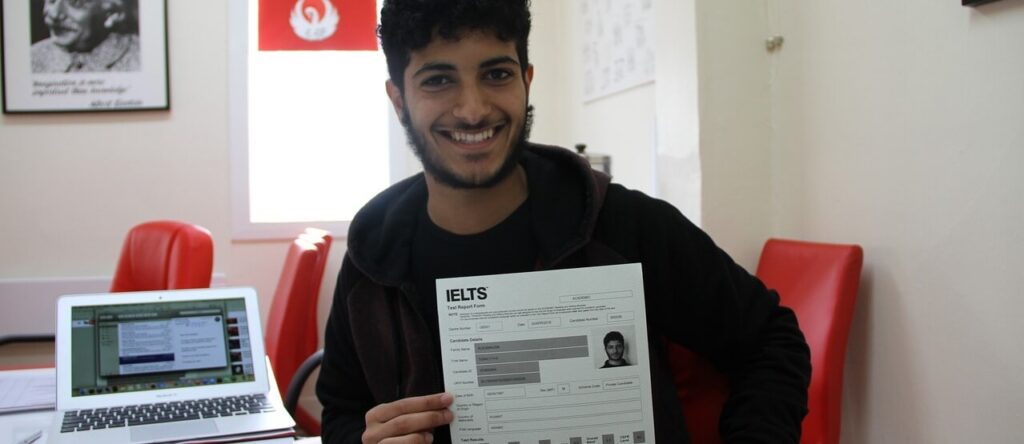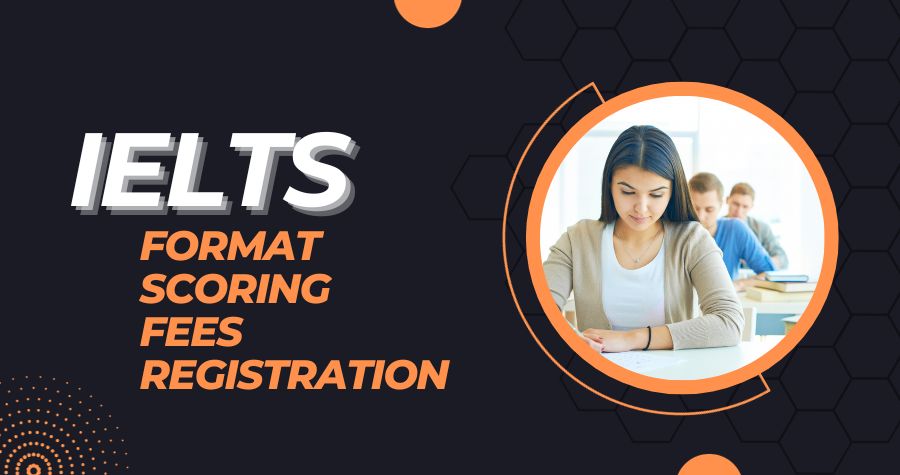September 23, 2023
Everything You Need To Know About IELTS
By Anila Paul
One way or another, you might have come across the term IELTS. But what is it? What makes it so popular? Who needs to take this test? You may be having a lot of questions on your mind regarding IELTS. Let's find the answers to your important questions regarding IELTS in this article!
What is IELTS?

The International English Language Testing System, or IELTS, is a globally recognized English language proficiency test designed to assess a person's ability to communicate effectively in English. The British Council, IDP IELTS, and Cambridge University Press & Assessment jointly manage it. The test is mainly offered in two versions: Academic, intended for those aspiring to study at universities and colleges, and General Training, primarily for immigration and work-related purposes. The test evaluates four essential language skills: Listening, Reading, Writing, and Speaking, providing a comprehensive assessment of a candidate's English language abilities.
What makes IELTS important?

The IELTS is an important test for several reasons. Firstly, it provides a standardized way to measure English language proficiency. Think about it for a second. How do you measure something?
We measure things by their quantity, mass, length, volume and other such physical properties. For all such physical properties, there are standardized measures such as grams, pounds, meters, litres, etc. Now, can we ascertain any such measures to someone's English language proficiency? Certainly not. This is where IELTS comes in handy. When someone achieves a total band score of 9, we can say with confidence that the person has full operational command of the language. Similarly, we can draw meaningful inferences about a person's English language skills based on their IELTS band score. Thus, IELTS is used by educational institutions or employers to make informed decisions about candidates' English language abilities.
Secondly, achieving a good IELTS score can open doors to numerous opportunities for test takers, such as studying at renowned international institutions, securing employment in English-speaking countries, and obtaining visas for immigration. It also promotes linguistic diversity and cross-cultural communication, making it easier for people from different linguistic backgrounds to interact in a globalized world. In essence, IELTS plays a crucial role in facilitating education, employment, and migration for millions of individuals worldwide.
What is the format of the IELTS test?
The IELTS test consists of four modules or individual tests, each designed to assess different aspects of a candidate's English language proficiency. These include Listening, Reading, Writing and Speaking.
Listening Test

In this module, you will have to listen to four audio clips of native English speakers and answer a series of questions on the content you just heard. The audio materials range from everyday conversations to academic lectures, testing your ability to understand spoken English.
Reading Test

The Reading test consists of three or four passages of increasing complexity. You will have to read these passages and answer a variety of comprehension questions. The texts cover a range of topics, from general interest articles to academic texts, assessing your reading skills in different contexts.
Writing Test

The Writing section consists of two tasks. Task 1 requires candidates to write a short report, summary, or letter based on visual data or a given scenario. In task 2, you will have to write an essay in response to a specific question or topic. This section assesses your ability to organize and express ideas in written form. In the IELTS General Training version, you will be required to draft a letter.
Speaking Test

The IELTS Speaking test is held on a separate date compared to the other three modules, which are held on a single day. It is a face-to-face interview with an examiner. It is divided into three parts: a brief introduction and interview, a short speech on a given topic, and a discussion with the examiner on the topic introduced in the second part. This section evaluates your ability to communicate fluently and coherently in spoken English. With careful preparation and proper planning, you can avoid certain common mistakes and ace the Speaking test.
How is the IELTS test scored?

The IELTS test uses a band scale ranging from 0 to 9 for scoring, with each of its four sections (Listening, Reading, Writing, and Speaking) individually assessed and assigned a band score. These band scores, which correspond to various levels of English language proficiency, are typically given in whole or half bands (e.g., 7.0, 7.5). To determine the overall band score, the scores of the four sections are averaged, with the final result rounded to the nearest half band. This standardized scoring system allows universities, employers, and immigration authorities to easily comprehend a candidate's English proficiency, and there are no pass or fail scores; the required band score varies depending on the specific requirements of the university or institution. For example, certain technical courses which emphasize practical and on-site training might require an overall band score of only 5.5 while some other courses that prioritize classroom learning might require an overall score of 6.5 or above.
How to register for the IELTS test?

You can book an IELTS test on your own at the website of IDP IELTS. While the whole application process is online, you will have to go through several steps. First, you need to locate an official IELTS test centre in your region and select a suitable test date. Then, you have to complete the online registration form, by providing personal details and specifying whether you want to take the Academic or General Training version of the test.
After registering online, candidates are required to pay the test fee. The test fee is around ₹16,250. Compared to other tests you might have taken, IELTS is definitely an expensive one. But if you don't want to spend any more on training and preparation, then you should check out the free IELTS coaching offered by PingMe. Once payment is confirmed, you will receive a confirmation email with essential test details, including the test date, time, and venue.
On the test day, you must bring the ID card which you used for registration. The test centre might request additional documents such as those related to Covid-19. So you should carefully go through the communication provided to you. It is crucial to register well in advance of the desired test date, as test centres often have limited availability, and late registration may incur additional fees or unavailability of preferred test dates.
Where can I take the IELTS test?
IELTS tests are conducted at numerous authorized test centres located in countries worldwide. These test centres are typically situated in major cities and regions, making it convenient for candidates to choose a location that suits them. You can find the nearest test centre to your location by visiting the official IELTS website. It is essential to plan ahead and select a test centre that is both convenient for you and has seats available. Test centre locations and test dates can fill up quickly, so you should book the test in advance.
What is the fee for IELTS?

The IELTS exam can be quite expensive, costing approximately ₹16,250, which is a significant expense for many individuals. Compared to other exams, the IELTS test is considered to be on the higher end of the cost spectrum. Apart from the test fee, many students also spend money on IELTS coaching. The cost of IELTS coaching can vary a lot, depending on your location and the duration of the course. But you can receive world-class IELTS coaching and training at PingMe for absolutely free of cost. PingMe is one of the best IELTS and English language training institutions in not just Irinjalakuda, but in Thrissur itself.
Other Blogs
3
Feb

How to Qualify for Germany’s Opportunity Card: Eligibility Criteria Explained
Germany’s Opportunity Card offers skilled professionals an easier way to live & work in Germany. Learn about the eligibility criteria, points system, and more.
28
Jan

Why Choose German Public Universities for Your Master’s Program?
Discover why German public universities are ideal for a Master's: world-class education, tuition-free programs, vibrant culture, and excellent career prospects!
2
Jan

Germany’s Opportunity Card: A Game Changer for Skilled Professionals
Germany's Opportunity Card offers skilled professionals a simplified path to live and work in Europe's strongest economy, no job offer needed.


